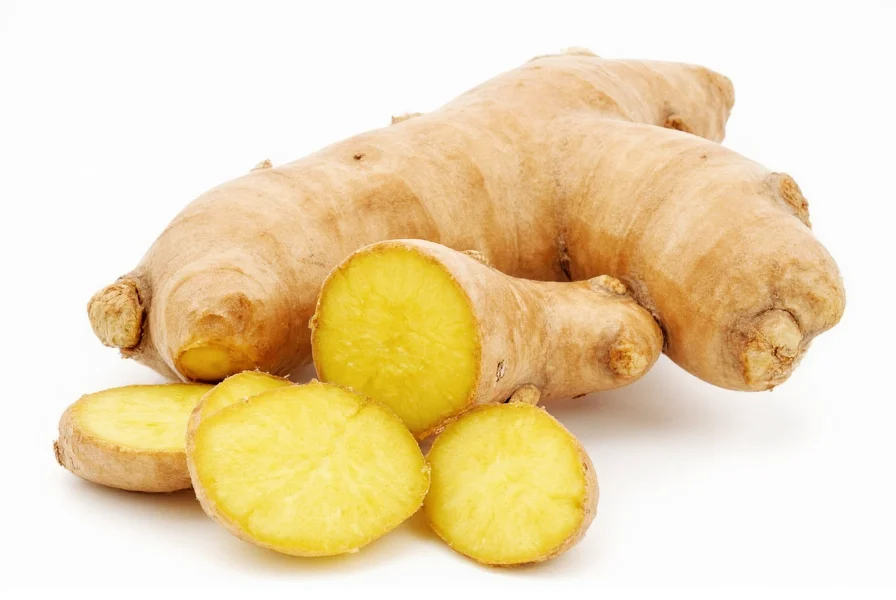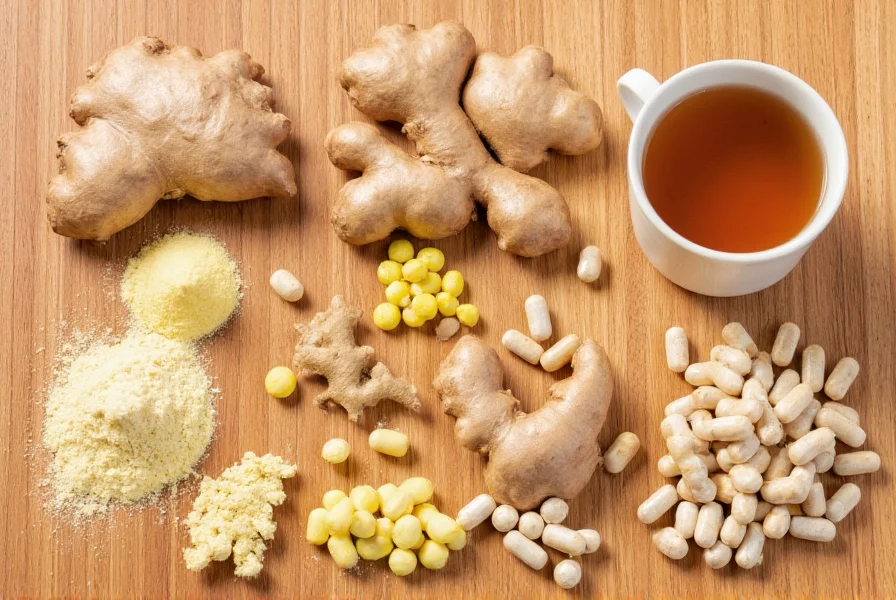Ginger has been used for thousands of years across various traditional medicine systems, but modern science continues to validate many of its therapeutic applications. This versatile root offers numerous health benefits backed by clinical research, making it more than just a culinary spice. Let's explore what ginger is good for based on current scientific understanding.
The Science Behind Ginger's Health Properties
Ginger's primary bioactive compound, gingerol, is responsible for many of its medicinal properties. This potent antioxidant and anti-inflammatory agent works through multiple biological pathways to deliver therapeutic effects. Unlike many herbal remedies with limited scientific backing, ginger has been extensively studied in clinical trials for various health conditions.
Top Evidence-Based Benefits of Ginger
Nausea and Vomiting Relief
One of ginger's most well-documented uses is for nausea relief. Multiple studies show ginger effectively reduces:
- Morning sickness during pregnancy (studies show 1-1.5g daily significantly reduces symptoms)
- Post-operative nausea
- Chemotherapy-induced nausea
- Motion sickness
A comprehensive 2020 review in Nutrients confirmed ginger's effectiveness for various types of nausea, with minimal side effects compared to pharmaceutical alternatives.
| Condition | Effective Dose | Research Support |
|---|---|---|
| Morning sickness | 1-1.5g daily | Strong clinical evidence |
| Post-operative nausea | 1g before surgery | Moderate to strong evidence |
| Chemotherapy nausea | 0.5-1g daily | Emerging evidence |
| Digestive discomfort | 2g before meals | Moderate evidence |
Anti-Inflammatory and Pain Relief Properties
Ginger demonstrates significant anti-inflammatory effects that can help with various pain conditions. Research published in the Journal of Pain found that daily consumption of 2g of ginger reduced muscle pain by 25% in study participants. Other studies show benefits for:
- Osteoarthritis pain (comparable to ibuprofen in some studies)
- Menstrual pain (dysmenorrhea)
- Exercise-induced muscle soreness

Digestive Health Support
Ginger stimulates digestive enzymes and accelerates gastric emptying, which explains why it's traditionally used for digestive issues. A study in World Journal of Gastroenterology found ginger reduced symptoms of functional dyspepsia by speeding up stomach emptying by 25%. This makes ginger particularly useful for:
- Indigestion relief
- Bloating reduction
- Nausea from digestive upset
- Supporting gut motility
Potential Blood Sugar Regulation
Emerging research suggests ginger may help regulate blood sugar levels. A 2015 study in Complementary Therapies in Medicine showed that 2g of ginger powder daily reduced fasting blood sugar by 12% and improved HbA1c levels in diabetic patients over 12 weeks. While more research is needed, these findings indicate ginger's potential role in metabolic health.
Immune System Support
Ginger's antioxidant properties contribute to immune support through several mechanisms:
- Antimicrobial effects against certain pathogens
- Reduction of oxidative stress
- Modulation of immune cell activity
- Anti-inflammatory action that prevents chronic inflammation
How to Use Ginger for Maximum Benefits
The effectiveness of ginger depends on proper usage. Here's how to incorporate ginger for specific health goals:
- For nausea: 1g of ginger powder or 2g of fresh ginger 30 minutes before potential nausea triggers
- For inflammation: 2g daily of fresh ginger or standardized extract
- For digestion: 2g before meals or as tea after meals
- For general health: 1-3g daily in culinary applications

Safety Considerations and Potential Side Effects
Ginger is generally safe for most people when consumed in food amounts or moderate therapeutic doses. However, some considerations include:
- May interact with blood-thinning medications (consult doctor if taking anticoagulants)
- Higher doses (over 4g daily) may cause heartburn or stomach upset
- Pregnant women should consult healthcare provider before using therapeutic doses
- May lower blood pressure (caution for those with hypotension)
Practical Ways to Incorporate Ginger Into Your Diet
You don't need supplements to benefit from ginger. Try these simple methods:
- Grate fresh ginger into stir-fries and sauces
- Brew ginger tea by steeping sliced ginger in hot water
- Add to smoothies for digestive benefits
- Use in baking (ginger cookies, cakes)
- Make ginger shots (fresh ginger juice with lemon)
- Include in salad dressings and marinades
Conclusion: What Ginger Is Really Good For
Based on current scientific evidence, ginger is most reliably good for nausea relief, reducing inflammation, improving digestion, and providing antioxidant support. While it's not a miracle cure, its well-documented benefits make it a valuable addition to a healthy lifestyle. The key is consistent, moderate consumption rather than expecting immediate dramatic effects. As with any natural remedy, consult your healthcare provider before using ginger therapeutically, especially if you have underlying health conditions or take medications.











 浙公网安备
33010002000092号
浙公网安备
33010002000092号 浙B2-20120091-4
浙B2-20120091-4